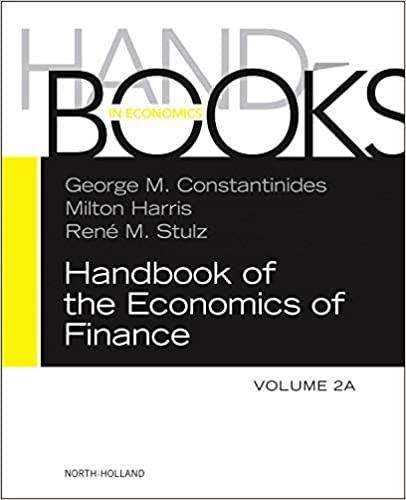Question
Suppose XYZ Corp., a hypothetical firm, is considering how to pay out $50 million in excess cash to shareholders. XYZ has no debt and expects
Suppose XYZ Corp., a hypothetical firm, is considering how to pay out $50 million in excess cash to shareholders. XYZ has no debt and expects to generate free cash flow of $30 million per year in perpetuity, starting next year. After this year, all FCF gets paid out to shareholders as dividends. XYZs unlevered cost of capital is 10%, so its enterprise value is:
= =$30 0.10=$300 EV=PV(Future FCF)=($30 million)/0.10=$300 million
With the cash, XYZs market value is $350 million. It has 10 million shares outstanding.
Explain EV and MV?
XYZs board is considering 3 options for distributing the excess cash:
1)Use the $50 million to pay a cash dividend.
2)Repurchase $50 million of shares instead of paying a dividend.
3)Raise additional cash to pay a $100 million dividend.
What is the expected effect of each policy? What do shareholders prefer?
Step by Step Solution
There are 3 Steps involved in it
Step: 1

Get Instant Access to Expert-Tailored Solutions
See step-by-step solutions with expert insights and AI powered tools for academic success
Step: 2

Step: 3

Ace Your Homework with AI
Get the answers you need in no time with our AI-driven, step-by-step assistance
Get Started


